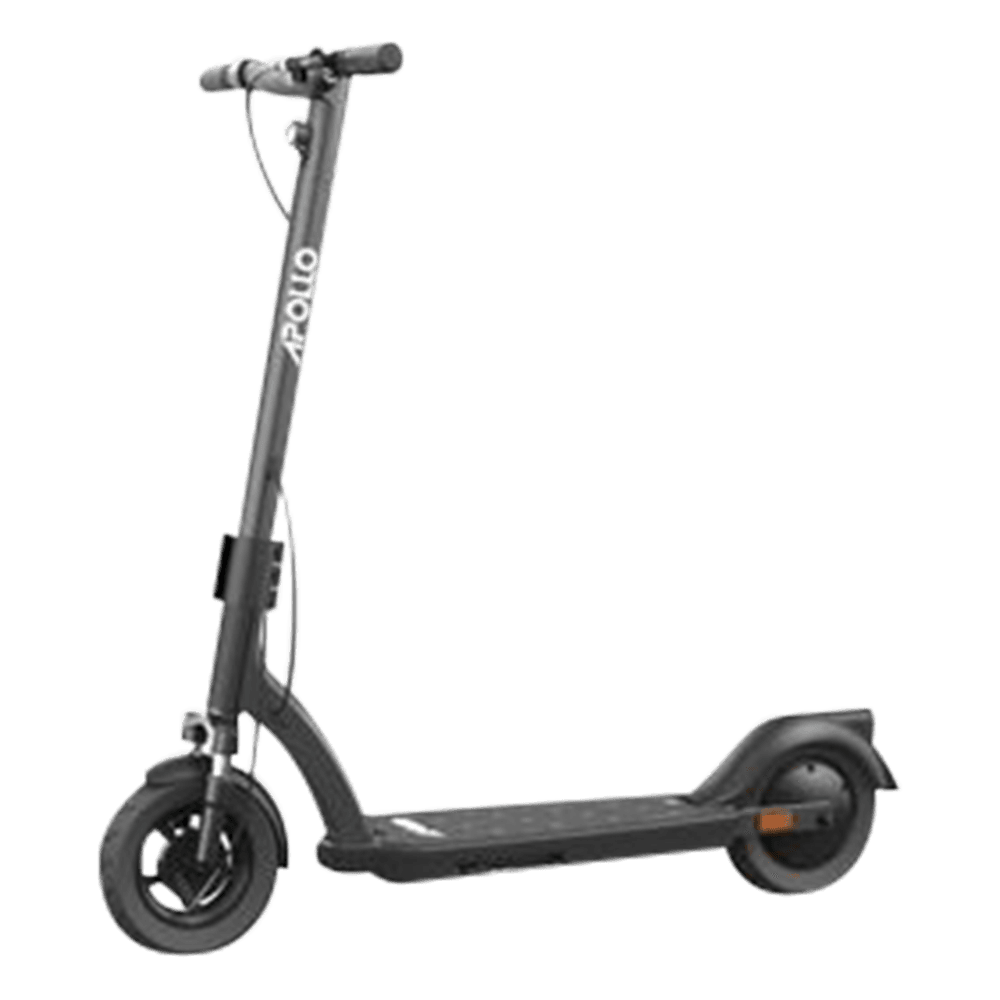Electric scooter comparison
Compare the Apollo Air Pro and the Fluid Freeride Horizon
Review the specs, pricing, and rider-focused details for the Apollo Air Pro versus the Fluid Freeride Horizon. Every matchup is sourced from Levy's internal database so you can make a confident choice.

Scooter A
Apollo Air Pro
Range 17.7 mi • Top speed 18.8 mph
$799

Scooter B
Fluid Freeride Horizon
Range 15.4 mi • Top speed 24.3 mph
$719
Specification breakdown
| Spec | Apollo Air Pro | Fluid Freeride Horizon |
|---|---|---|
| Range (mi) | 17.7 mi | 15.4 mi |
| Top speed (mph) | 18.8 mph | 24.3 mph |
| Weight (lbs) | 36.8 lbs | 43.6 lbs |
| Motor power (W) | 350 W | 500 W |
| Battery capacity (Wh) | 374 Wh | 480 Wh |
| Brakes | Drum | Drum |
| Tires | Pneumatic | Mixed |
| Waterproof rating | IPX4 | None |
| Suspension | Spring | Dual Spring |
| Price (USD) | $799 | $719 |
Comparing the Apollo Air Pro and Fluid Freeride Horizon Electric Scooters
When comparing the Apollo Air Pro and Fluid Freeride Horizon electric scooters, several key differences become apparent. The Apollo Air Pro is known for its large 10-inch air-filled wheels which provide excellent traction, and the ability to tackle different kinds of terrain with ease. Its 15.5 mph max speed and 28-mile range suits those with longer commutes. The Air Pro also features mechanical brakes and electronic ABS for safety and excellent stopping power.
In contrast, the Fluid Freeride Horizon has a slightly higher top speed at 18.6 mph, and a similar maximum range of around 25 miles, although this can vary depending on rider weight and terrain. It includes both mechanical and regenerative braking systems. The Horizon is noted for its 8.5-inch solid rubber tires, providing a comfortable ride with no worries about punctures.
Both scooters have a powerful 500W motor, but the Air Pro offers a slightly smoother acceleration while the Horizon tends to have more kick. They also differ in weight capacity. The Apollo scooter can support up to 220 pounds, while the Horizon can carry a heavier rider of up to 265 pounds.
They both offer robust folding mechanisms, making transport and storage easier. The Apollo scooter, however, is a bit heavier than the Horizon, which could be a consideration for those who may need to carry it frequently. Prices for both models are similar, making the choice between them more a matter of personal preference, terrain, and specific usage needs.
Keep researching with Levy
Browse thousands more matchups or reach out to our team for personalized scooter advice.


